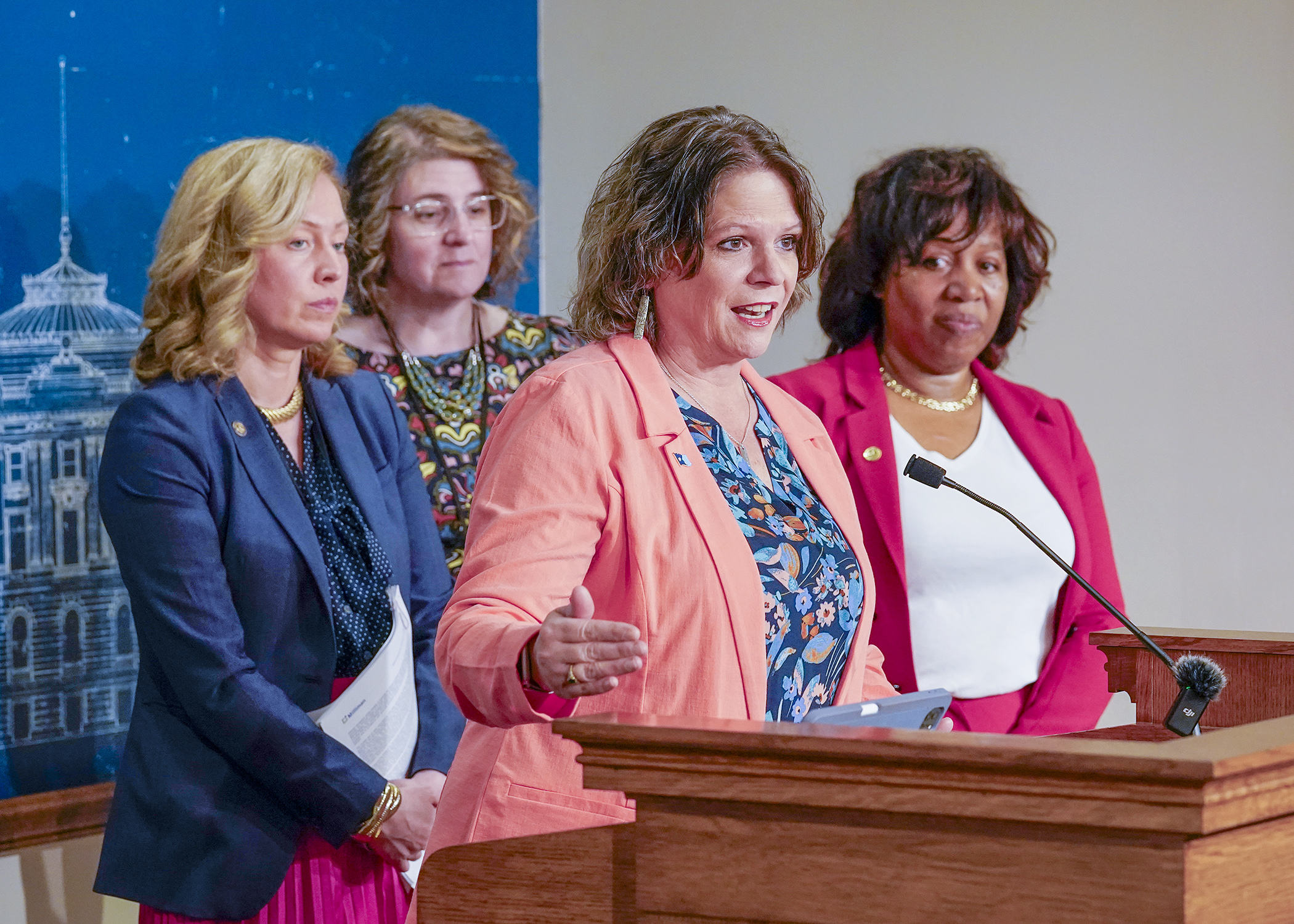House passes $43 million supplemental education finance bill

— UPDATED at 9:46 p.m. after vote
Following a discussion that lasted about as long as a school day, the House passed its supplemental education finance bill Tuesday night.
Rep. Cheryl Youakim (DFL-Hopkins) sponsors HF5237, which, as amended, would appropriate $43 million in supplemental public education funding in fiscal year 2025.
It would expand the voluntary pre-kindergarten program, create programs to investigate student attendance and truancy, and pay student teachers a stipend for their student teaching experience.
Passed 68-61, the bill now goes to the Senate.
“This year we have the opportunity to invest in our [kindergarten through grade 12] students once again, and I believe we make efficient and effective use of those funds in this bill,” Youakim said. “We made serious investments last year both in funding and the direction we want our state education system to go.”
Republican sticking points revolved around the cost of mandates placed on schools during the 2023 session.
Rep. Ben Bakeberg (R-Jordan) said there are several positive bipartisan things in the bill that were logical decisions, but legislative overreach has damaged schools. “(The bill) continues the trend of growing government. Growing bureaucracy furthest from the classroom, all while leaving students and teachers underfunded, overburdened with more and more mandates.”
[MORE: Education finance bill gets passing grade in committee]
Read Act
The bill would provide a significant funding bump to the Minnesota Reading to Ensure Academic Development Act. Signed into law in 2023 with the goal of having every child annually read at or above grade level, more than $37 million would be directed toward the act — with $31.37 million allocated to complete teacher training.
Rep. Peggy Bennett (R-Albert Lea) would like to see more emphasis placed on student literacy, as reading proficiency in Minesota continues to decline.
“We better start funding and doing a good job with taking care of our students who can’t read. And even those who can, let’s bring them farther,” she said.
Paying student teachers
Many aspiring teachers say the largest barrier to attaining their license is the 12-week student teaching experience with no pay. The bill would provide $7 million to create a pilot program at seven teacher preparation universities and colleges to pay student teachers a stipend. Each student teacher would receive up to $7,500 for their student teaching experience in 2025.
Student attendance and truancy
The bill would establish a pilot program to develop and implement strategies to improve student attendance and help policymakers determine how to effectively support school district efforts to improve student attendance and engagement. The program would be funded $3.34 million in fiscal year 2025, with nine school districts participating in the three-year program.
“The rates of chronic absenteeism across our state are rising,” said Rep. Samantha Sencer-Mura (DFL-Mpls) during a pre-session news conference. “Our message to Minnesota students is really clear: We want you back. We want you back in the classroom. We want you back in the learning environment, and we’re willing to do the work to get you back there.”
It would also establish a legislative study group, funded with $64,000 for the fiscal year 2025 to study issues related to student attendance and truancy. A final report would be due by Dec. 31, 2024.
Office of Inspector General
Youakim successfully offered an amendment that would give the Department of Education's Office of the Inspector General data access and subpoena power to investigate abuse, waste and fraud in education spending. It would also set up an appeal process.
Rep. Nolan West (R-Blaine) successfully offered an amendment to Youakim’s amendment that would insure the inspector general report directly to the commissioner of education and would not be terminated, reprimanded, discharged, suspended without pay, or demoted except for just cause.
Other successful amendments would:
- redirect $50,000 of previously allocated funding to the Professional Educator Licensing and Standards Board for computer science teacher licensure; and
- make several primarily technical changes to the Read Act.
Republicans unsuccessfully offered more than dozen amendments, including:
- changing the Read Act to use science-based reading research;
- allowing school districts to move state aid and local property tax receipts among its accounts and funds in fiscal year 2025;
- striking the state health education standards mandates and allocating $627,000 for cannabis prevention education;
- removal of funding for several grants and the transfer of $38 million from the General Fund to the Department of Human Services for compliance grants to family child care providers;
- establishing an Office of Student Attendance and Truancy;
- establishing a legislative study group on education mandates;
- allowing a school district to require a student against whom a restraining order or order for protection has been issued to receive instruction in an alternate setting;
- establishing funding for schools with American Indian names to make necessary changes to replace their names, symbols or images, athletic uniforms, equipment and other school property; and
- the suspension of the adoption and implementation of revised social studies standards and benchmarks.
Related Articles
Search Session Daily
Advanced Search OptionsPriority Dailies
Speaker Emerita Melissa Hortman, husband killed in attack
By HPIS Staff House Speaker Emerita Melissa Hortman (DFL-Brooklyn Park) and her husband, Mark, were fatally shot in their home early Saturday morning.
Gov. Tim Walz announced the news dur...
House Speaker Emerita Melissa Hortman (DFL-Brooklyn Park) and her husband, Mark, were fatally shot in their home early Saturday morning.
Gov. Tim Walz announced the news dur...
Lawmakers deliver budget bills to governor's desk in one-day special session
By Mike Cook About that talk of needing all 21 hours left in a legislative day to complete a special session?
House members were more than up to the challenge Monday. Beginning at 10 a.m...
About that talk of needing all 21 hours left in a legislative day to complete a special session?
House members were more than up to the challenge Monday. Beginning at 10 a.m...